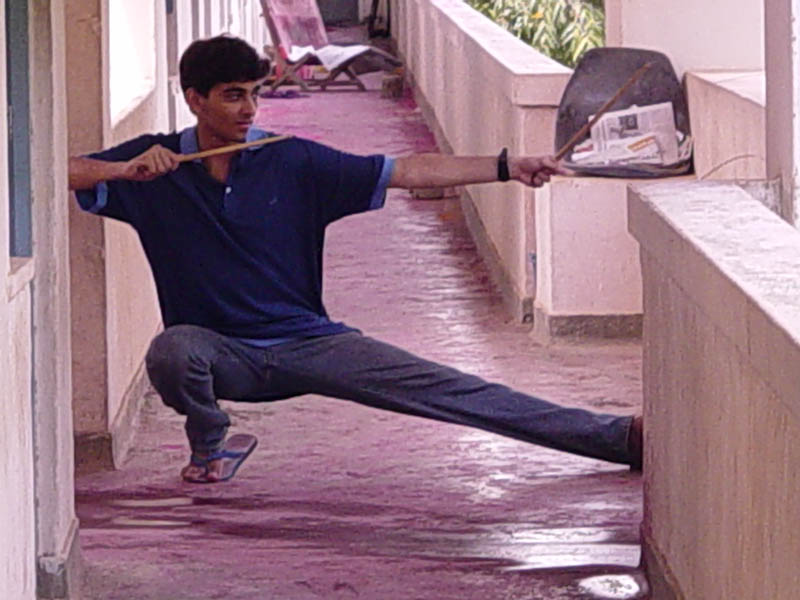Conundrums
A guest lecturer conducts a course intended to instil the entrpreneurial spirit into students here.
Many things about the course are repulsive.
For example: It is said that the lecturer - an alumnus, a well known and highly successful entrepreneur - figures prominently on a list of top defaulters in the nation. His business strategy reaks of opportunism - businesses bought and sold at the faintest trace of a profit, not a care given to the fundamentals. He speaks proudly of (and even preaches) various ways to "manipulate" company balance sheets to extract suitable loan terms from lending institutions. The greatest slight, however, is still to come: Confidently, as if it were the plainest and most obvious thing in the world, he states that the three greatest desires of man are money, power and sex.
Naturally, reduction of desires and pursuits to such primal levels rests uneasily upon the minds of students intoxicated with beliefs of superiority.
An institution that stresses the importance of ethical standards in business has surely made a gross error then in choice of lecturer. Or has it?
Consider...
Most students in my institute are pretty much guaranteed what would be considered well-paying jobs that will allow them to lead highly comfortable lifestyles. Jobs that will allow them to slip into the mainstream of vast corporations and do the willing of their bosses for suitable compensation.
Therein then lies the danger of losing entrepreneurial potential in a silly tradeoff for the comfort of safety.
So in comes the man on the street, the man with experience, to drill it into the potentials that better ways of achieving their ultimate objectives exist outside the world of corporate life. Nipping the bud and stemming the rot of stifled ambition.
Point taken. End admired.
But must the methods be so dirty? So gloriously painful?
And if so, how does that reflect on us, the students?
Means hated.
Interesting aside...
It is not a strecth, I believe, to think that the institute has considered and favoured other means of conveying the message. Yet this is the method they have chosen. It is also, not a stretch then to believe that the reason for this choice is the impracticality of other means.
Bringing us to the case of ethics in sports, which I discussed with many friends here.
Stand taken by Challa:
Never walk in cricket. Never admit a handball in football. Never do anything to jeopardize the goal - victory. The errors even out. The means are dirty but justified by the noble end.
My original stand:
Walk in cricket. Take the first step to cleanse the sport. The end cannot be noble if the means are not.
The repartee:
History remembers only the ends. Not the means.
And my repartee:
In our lifetimes, we don't live for history. And how we will be jusged by history is beyond our control. What is remembered now is the means - and NOW is far more within our influence than the future.
Wednesday, June 23, 2004
Reflections of me. Total. On Cue. On Total. On Cue...
Previous Posts
- My TermPlan Very broadly, some of the things I ho...
- Abstraction and Escapism A lot of people, of late...
- A Brand New Beginning What's changed? The food...
- The Morning After Another Saturday spent doing no...
- Justice. That's the reason this blog exists. As c...
Virtual Places I like To Visit
- Tech Greek by Deepak
- Neville's Cool. Despite this link.
- AHP's Unratiosenatism
- Edgar Allan P'eau's Midnight Mysteries
- Mallu Masala aka Domain Maximus
free hit counter


2 Comments:
To whatay part exactly,
if you don't mind me asking
Are these whatays for??
The article in general and the last part in particular. And update your blog more often - it's not like you have a life anyway.
Post a Comment
<< Home